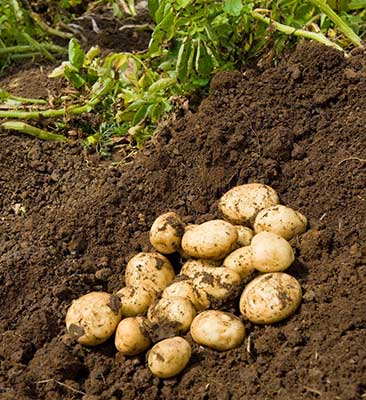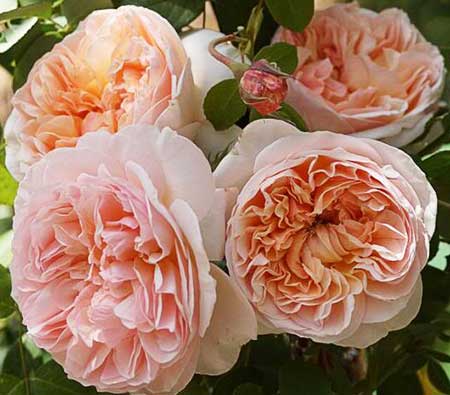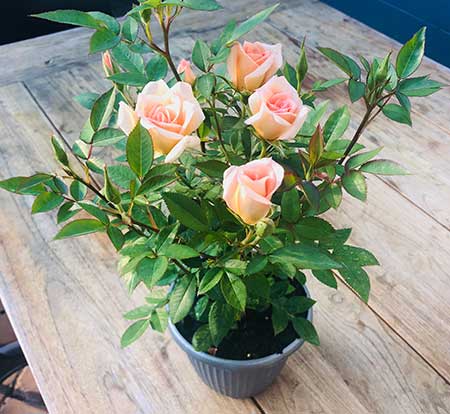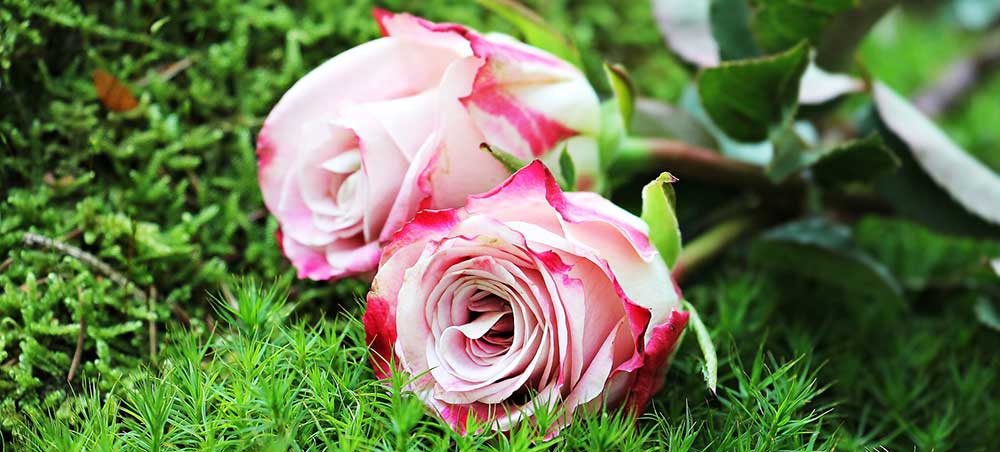August Gardening
Winter's nearing its end, what does gardening look like in August?
For us at Nichols, new season stock starts flowing into our stores and soon we will be bursting at the seams wondering where to put it all!
POTATOES
To get you off to a good start and, hopefully(!) be enjoying your own tasty potatoes at Christmas lunch, seed potatoes placed in trays now (with their blunt end upwards). 
- Leave in a warm, frost free area that gets plenty of light for about 1 month to sprout until the sprouts are appx. 20-40mm long, and then plant out.
- Dig in organic matter like sheep pellets into your garden bed and make long furrows in the soil about 300mm-400mm apart depending on the size of the variety you're planting.
- Place seed potatoes at about 250mm intervals in the furrows and cover with appx. 50mm of soil and water well.
Jersey Bennes are our most popular variety. Great for boiling, salads, casseroles, soups or mashing. An excellent potato for Christmas lunch!
STRAWBERRIES
Strawberries are one of the easiest and quickest fruit to grow. They don’t need much space and will fruit successfully grown in tubs, hanging baskets and even share an area of vegetable or flower garden.
- Choose a sunny well drained spot and fork in Tui Strawberry Mix then mound up the soil and plant the strawberry on top.
- After planting, put layers of straw around them which will keep the fruit off the soil and allow the fruit to ripen without the risk of rotting.
ASPARAGUS
‘Jersey Giant’ produces 2-3 times more spears than its older cousins and a good home variety producing good spears for harvest inside the second season.
- After purchase don’t let it dry out – it can be useful to soak the crowns in warm water before planting out.
- Prior to planting, dig in some compost and make sure the area drains well as asparagus hate wet feet.
- Plant the crowns in a sunny spot away from other crops so that the asparagus remains undisturbed.
- Avoid harvesting in the first year; rather let the spears open up into ferny fronds – they are building up good strength below ground.
- In the second year a few spears can be cut.
Later in September a new variety of Asparagus Pacific Purple will be available, this variety of asparagus produces distinct dark spears. It is sweeter than its greener cousin and more tender.
MOSS
Now is the time to kill moss in lawns. Nichol’s Lawncare will kill the moss and encourage new grass growth to take over all in one application.


ROSES
Sue, our rose specialist at Nichol's Invercargill
Of all the shrubs that you plant in your garden, roses are the most rewarding. They flower through the spring, summer and autumn, and this morning I noticed perfect blooms on my ‘Summer Song’ and ‘Hamilton Gardens’, so we even get a treat in winter!
Roses are fragrant, very resilient and come in a huge range of colour. I have noticed that the colours are particularly intense in this part of the world, more so than in warmer areas, perhaps it’s something to do with the light.
Roses are offered for sale now because they are dormant, and it is without doubt the best time of year to plant them, as they can establish before the main growing season, and then have a full ten months in which to grow into a good stout plant, without disturbance.
Planting & Growth Tips
Replace the soil
Roses resent being planted into ‘second hand’ soil, a problem that occurs when you are replacing roses in an existing bed.
The soil should be dug out and replaced, which seems like a lot of effort but your roses will be in the same spot rewarding you for years so it is worth doing the job well.
Dig a good hole
Roses are ‘budded’, which means the roots are grown on a vigorous wild rose and then buds of the different varieties are attached to the top so the hole needs to be able to support the roots.
- Roses are heavy feeders and won’t thrive if you dig a hole just big enough to stuff it in, be generous!

Staking & Support
- When planting roses, make sure they are firm in the ground.
- Standards need to be staked at the time they are planted, so that the stake does not damage the roots, which it might do if pushed in later.
- The stake should go right up into the head of the standard rose. If it is under the head of the rose the top of the bush can break off in high wind.
Potting Roses
The Flower Carpet range is a good example of roses that do very well planted in pots. It is important to replace the soil in the pots during winter, and to feed them during the year as it takes a lot of food and energy to grow the bush during the year. Then at pruning time we remove it all!
Feeding Roses
- To get the best results you have to keep feeding your roses.
- Slow release fertilizers are recommended for potted roses, where as in the garden beds granular Rose food is adequate. Frequent smaller applications always work better than a good dollop.
We have a really good range of roses this year, some new varieties that we have not had before and some are selling out fast.
Buy now online or come in store and browse through our selection and choose your favourites. We look forward to sharing our love of roses with you!
DECIDUOUS TREES & FRUIT TREES
We’ve been waiting eagerly for the arrival of our deciduous trees and now have many to choose from for either ornamental or shelter use.
We also have our magnolias, rhododendrons and fruit trees available, once again, on Pre-Order; please refer to our Pre-Order page for more information. If you are after a particular deciduous tree or fruit tree it would pay to pre-order or get in touch with one of our stores to place an order as they are selling quickly this year with some varieties already sold out.
- We advise using two year slow release fertiliser tablets and staking when planting to give them a good start. Another good fertiliser to add is Novatech which is similar to Nitrophoska Blue but releases over a longer period.
PEST & DISEASE CONTROL
Pests and diseases can significantly affect the appearance of the tree and fruit, as well as affecting the general health and vigor of the tree if badly infected. Prevention is much more effective and successful than trying to cure once infected.
Spray Options Include:
For Fungus Diseases, check out these products:
For Treatment of Pests, checkout these products:
Always check the label to ensure you are treating your plant with the correct product.
Spring is an important time of year to maintain the spray programme, as pests and diseases are more active and the tree is opening up through the buds.
Pruning
Remember now is also the time for making sure your pruning is up to date. If you’re not sure what should be done please call into your local Nichol's Garden Centre where one of our friendly staff will be able to help you.
Also arriving in August: Dahlias, Boronias, Large Camellias, Proteas, Gladioli and Begonias, Rhododendrons, Deciduous Azaleas, Daphnes, Maples and much more!

10583